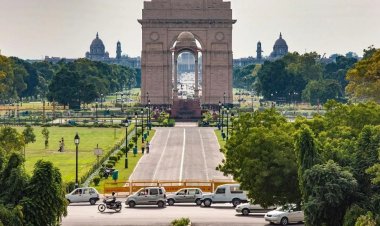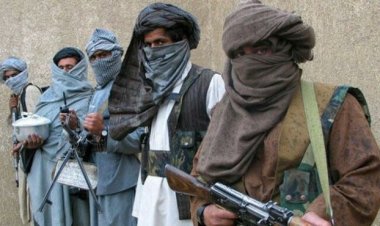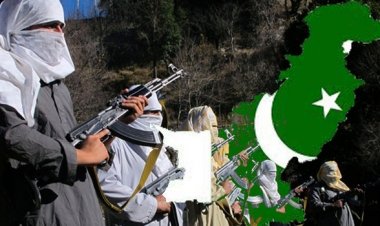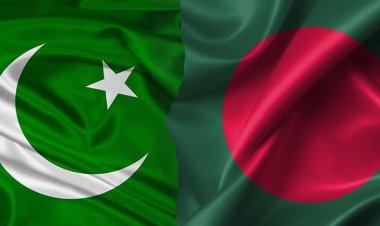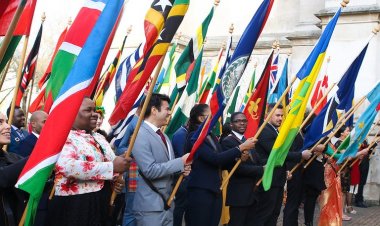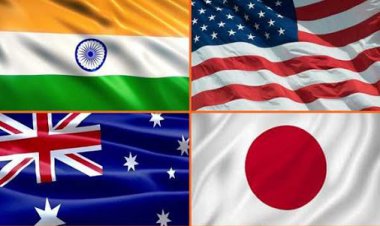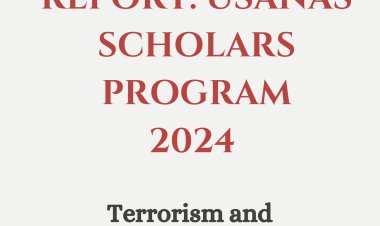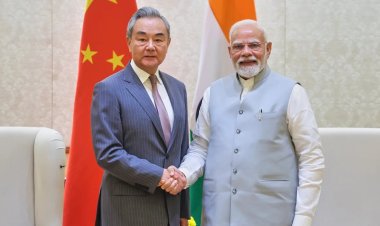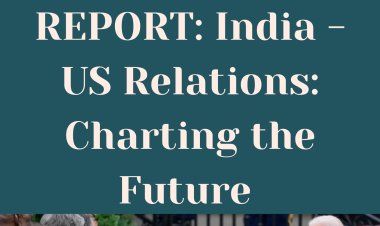Bangladesh at Crossroads: The Rise of Political Islam
This article examines the rise of political Islam and religious nativism in Bangladesh, where the erosion of secular principles has led to increasing marginalization of minority groups and a shift toward a religiously homogeneous identity. Widespread public support for Sharia law, even among the educated elite, is fueling this trend, creating a potent mix that threatens Bangladesh's stability and inclusivity.

Analysis
by Gargi Shanbhag
In 1975, ‘Bangabandhu’ Sheikh Mujibur Rahman and almost his entire family were murdered. Fast forward to five decades, his daughter now ex-PM of Bangladesh, Sheikh Hasina and Sheikh Rehana, left their homeland in an army helicopter from Dhaka and arrived at Hindon airport, near Delhi, India. Countries worldwide have special respect for their revolutionaries, freedom fighters, and founding fathers who led the fight for independence. Sheikh Mujib’s murder even today is shrouded in mystery. For a country’s founding father to be killed, and terrorise his daughters into leaving the country, says a lot about its citizens. As The London Times August 16th 1975 editorial read,
“If Sheikh Mujib is killed so tragically, there was no need to emerge Bangladesh as a free country.”
The Awami League and Sheikh Hasina have consistently championed democracy and economic development in Bangladesh. Despite enduring personal tragedy - with her parents and cousins falling victim to violence in the country - Sheikh Hasina remained committed to advancing democracy and alleviating poverty in Bangladesh. However, growing unemployment and student protests over reservations for descendants of Bangladeshi freedom fighters have precipitated national unrest. Instances of iconoclasm are being witnessed as violent protestors, set ablaze Mujibur Rehman’s residence-turned-museum, where he was assassinated. Furthermore, the iconic statue showing Lt. Gen A. A K Niazi surrendering to India, post India-Pak war of 1971 was attacked. What was a peaceful protest against reservation is now hijacked by radical Islamist groups in the country. This is also political Islam at its worst.
On Thursday, 8th August, Nobel Laureate Professor Muhammed Yunus took oath as chief adviser, equivalent to a prime minister of the interim government in Bangladesh. He has urged his supporters to maintain restraint and peace and promised India’s PM Narendra Modi thatminorities will be treated equally. But the conflict between the Muslims and minorities is far from over.
Political Islam and Bangladesh
Political Islam in simple terms, states that Islam and secularism cannot go hand in hand. Bangladesh, which is erstwhile East Pakistan, was founded on the need for a separate Islamic nation. So even after independence in 1971, Bangladesh’s founding father, ‘Bangabandhu’ Mujibur Rahman stood for secularism, and religious minorities were marginalised within their own nation. There have been numerous changes to the relationship between Islam and the state. Secularism was one of the four founding principles mentioned in the original constitution, not Islam. Islam was included in the constitution in several ways by later military dictatorships (1975–1990), notably as the official state religion in 1988.
Since Hasina's departure, the Awami League (AL) and its opposition parties, especially the Bangladesh Nationalist Party (BNP), have been engaged in a visible struggle. Non-Muslim groups, like Buddhists, Hindus, Atheists and Christians have frequently been the victims of this rivalry and a polarising political climate in which minorities have been implicated in violations of human rights.
Identity Politics: Islam v/s Secularism
Although Awami League, which is known for its secular stance, had off-late started to demonstrate widespread support for laws based on religious interpretations, policies that are focused on Islam, and a growing willingness to make accommodations for Islamist views. Consequentially, a hegemonic version of Islam emerged as a result of the integration of Islam into state institutions, which nationalised religious leaders and doctrines. Minorities' status becomes unstable due to the legal benefits and immunity accorded to dominant types of Islam. Islamic institutions formed a part of the national identity and the administrative framework, regardless of whether or not Islam was officially recognised as the state religion.
Data from multiple sources and news publications hint at only one issue: The breakdown of secularism, equality, and human rights in Bangladesh. This is also nativism at play. According to nativism, countries should only be populated by people who belong to the native group and non-native components (ideas and people) pose a serious threat to the homogenous nation-state. The only difference is, that nativism is usually ethnic, but in Bangladesh, it is religious nativism. This denotes, that only native Muslims should constitute the in-group or the homogenous group for Bangladesh. A majority of over 98% of Muslims in Bangladesh agreed that religion holds a significant position in their life.
No Place for Minorities
Numerous studies have been conducted over several decades, on Bangladesh about how the deadly concoction of political Islam, nativism, and religious fundamentalism, will prove detrimental to the existence of minorities in the country. A Pew Research Survey conducted in 2013 revealed that 71% of Bangladeshi Muslims wanted religious scholars to adjudicate family and property conflicts and that 4 out of 5 supported making Sharia the supreme law of the nation. A staggering 83% of respondents said that it was ‘a bad thing’ to not abide by Sharia law. Quantitative analysis by Resolve Network is the most extensive analysis of popular opinion on Islam, politics, and militancy in Bangladesh to date. Minorities had far lower support for Sharia law and the inclusion of religious leaders in public life. Another Resolve Network survey titled, ‘Islamist Militancy in Bangladesh: Public Awareness and Attitudes’ published in September 2017, showed even if they disagreed with the militant Islamists' tactics, 34% of respondents supported their objectives. The survey’s key findings were,
“While overall support in Bangladesh for violent extremist groups and their violent tactics is low, a surprising number of well-to-do and well-educated Bangladeshis indicate support. Among those who indicated support for violent extremist tactics in a countrywide survey, women indicated greater support than men.”
Three active Islamist militant outfits active in the country are Jagrato Muslim Janata Bangladesh (JMJB), Ansarullah Bangla Team (ABT), Jamaat-e-Islami and its extremist student branch, the ‘Islami Chhatra Shibir’, and Islamic State (Da’esh). Their objectives are to eliminate Bangladesh’s judicial system, replace it with Sharia and stop the publication of modern literature. The results of the Resolve Network study verify that Bangladesh is a non-secular society and support the idea that there is widespread support for authoritarian intolerant politics and calls for a non-secular state.
As we understand more about this escalating situation, EU and India’s diplomats are expressing concern. What they should also be concerned about is rising fundamentalism among civilians and military alike, which facilitates a fertile breeding ground for terrorist organisations. Ex-PM Hasina, who was perceived as pro-India, her ousting is also translated as a victory of anti-India and India-Out sentiment. India, which almost engulfed Bangladesh from three sides, faces a major security threat, and the porous borders are not much of an advantage either. In light of the geopolitical positioning with Pakistan and Bangladesh, India must now prepare for the potential of combatting terrorism ontwo fronts. Furthermore, India's implementation of the Citizenship Amendment Act, which expedites the citizenship process for persecuted minorities, may serve as a crucial refuge from life-threatening attacks and gender-based violence in Bangladesh.
Disclaimer: This paper is the author's individual scholastic contribution and does not necessarily reflect the organization's viewpoint.

